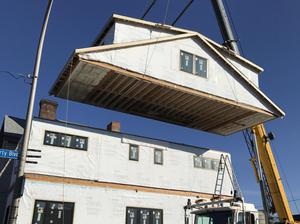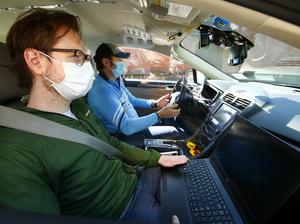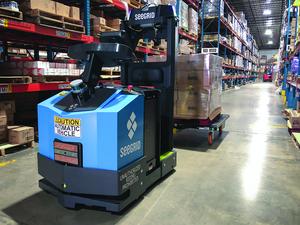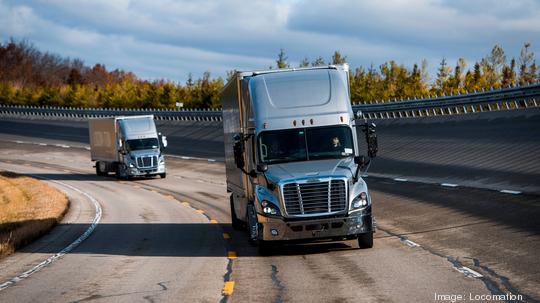
Here are five trends or companies to watch in the year to come for Pittsburgh's budding tech and innovation scene:
1. SPAC Spreads
This year, two tech firms went public, putting a stop to a years-long dearth of local tech company IPOs.
The first, language learning platform Duolingo Inc. (NASDAQ: DUOL), went through the traditional IPO route and started trading on Nasdaq in July. The second, autonomous vehicle firm Aurora Innovation Inc. (NASDAQ: AUR), went through a SPAC (special purpose acquisition company) merger when it successfully merged with Reinvent Technology Partners Y in November, raising about $1.8 billion in the process. It’ll use the funds to further build its autonomous vehicle technology for trucks and cars and expects to be profitable by 2027.
While the concept of a SPAC has been around for decades, it has only been in the past two years that an increasing number of companies have gone public through this route, a trend that’s expected to continue in 2022.
Other local tech companies are speculated by some in the local startup and finance industry to be pursuing a similar route via SPAC next year.
“I think that there’s a number of contenders in Pittsburgh that, once they get themselves to the point where their business model and growth has been in some ways proven but they do need that influx of capital and they are working on hot technologies in robotics, in energy, in industrial manufacturing, I think that’ll be a route that’s open to them here in town,” said Justine Kasznica, a technology and commercial transactions attorney with Pittsburgh-based law firm Babst Calland. “There’s a number of SPAC-like investor brokers that are going around town routinely and calling companies to see if there’s interest on the company side.”
One such broker is Seattle-based investment bank Cascadia Capital LLC, which is actively looking to merge the SPAC it sponsored with a company in Pittsburgh focused in the AI, automation and robotics industry. It has until 2023 to seal such a deal.
With a public debut, companies are infused with a tremendous amount of capital that’s needed to scale. But like all investments, SPAC mergers also come with risks for investors.
“The big takeaway here is that it’s compelling for tech companies that may not be sitting on customer revenue streams today at the size that they know that they will get to in the next couple of years,” Kasznica said. “That also raises the obvious risk of the SPAC, which is you have, in the stock market, a lot of entrants or interested companies that may be puffing their projected revenues or may not give a fair and balanced and realistic description of the market in which they are in and that gets evaluated pretty quickly. When they go public and they’re not hitting those revenues that they’re promised, that sends a chilling effect on that whole market in which they operate.”

2. Autonomy advances accelerate
Machine learning and AI are poised for more advancements in the new year, and Pittsburgh is at the center of these changes.
Pittsburgh-based autonomous trucking company Locomation Inc. plans to launch its Autonomous Relay Convoy system commercially in late 2022, first with Wilson Logistics, then followed a bit later with PGT Trucking in 2023. With ARC, Locomation is able to have two trucks electronically tethered in a convoy that is led by a human driver in the first truck while a second driver rests in the follower truck that operates autonomously behind the first. The trucks periodically swap places to allow the drivers to take turns sleeping, which also allows for the operating time of the two trucks to reach between 20-22 hours per day.
Meanwhile, Aurora Innovation Inc. will continue to refine and test its self-driving technology as it gears up to launch its first commercial product aimed at trucking, a subscription-based pay-per-mile service to its Aurora Driver, in 2023. Argo AI, another Pittsburgh-based AV company, will also continue to refine its self-driving tech, though the company doesn’t offer specific timelines for when it expects its product to be released commercially.
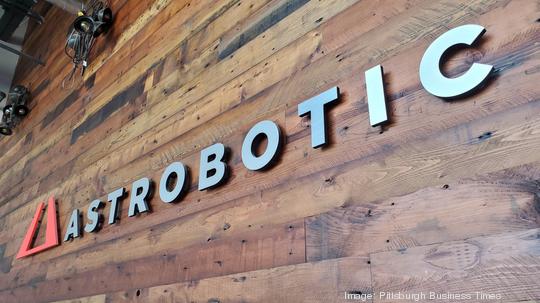
3. Launching a lunar lander, making a Moon Museum
This year will see no shortage of rockets taking off, and Pittsburgh-based space company Astrobotic Technology Inc. is expected to send its Peregrine Lunar Lander on board one of them — NASA’s first commercial space mission, which is set to head to the moon in 2022. Over the past year, the company has continued to build out its North Side headquarters to serve as mission control for the lander following the launch. Nearly 20 payloads in total will be attached to the lander when it takes off, including two from Carnegie Mellon University.
But Astrobotic isn’t just going to the moon — it also plans to open a museum here on Earth. The Moonshot Museum is now halfway through its $2.7 million capital campaign. Expected to open in the third quarter of 2022, the soon-to-be-under-construction exhibition and events area will be housed inside Astrobotic’s headquarters, allowing those in attendance to see first-hand the development of future technologies and products that will someday end up on the moon.
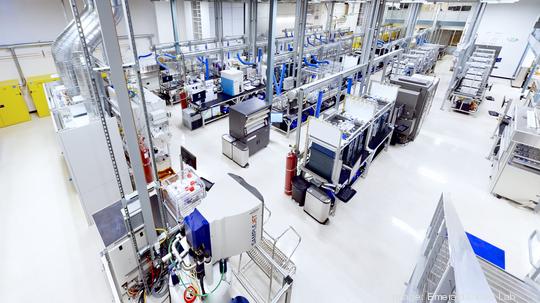
4. Cloud clout climbs
The use of the cloud for businesses has been growing for a few years now, but expect new uses for the technology in 2022.
In late summer 2021, Carnegie Mellon University announced plans to build the world’s first cloud lab in an academic setting, with the goal of allowing for remote-controlled, AI-driven experimentation to commence 24 hours a day, every day of the year. The idea is to have every instrument needed for a biology and chemistry wet lab under one roof that’s connected together by software and robots, allowing for seamless interaction with each other.
CMU plans to reserve 80% of the lab for university research and teaching as well as for outreach to underresourced smaller colleges that it has relationships with, while the remaining 20% will be saved for the life sciences startup ecosystem of Pittsburgh. To build out the future lab space in Bakery Square, the university is partnering with San Francisco-based Emerald Cloud Lab, a company founded by CMU alumni Brian Frezza and D.J. Kleinbaum. It’s expected to cost $40 million and will be completed in summer 2022.
5. Securing cyber
Threats involving cybersecurity are only going to climb as society becomes more reliant on internet-connected devices, and Pittsburgh-based cybersecurity firms will be trying to monitor these developments as they occur. These are the predictions for what could happen in this space in 2022, according to Lucia Milicǎ, global resident chief information security officer for Proofpoint.
Milicǎ said to expect specific application program interfaces to be part of attacks aimed at compromising the supply chain as criminals find new tools to exploit vulnerabilities, potentially creating more large-scale data breaches. When it comes to the workplace, she said the human element to cyberattacks, like falling victim to social engineering or insider threats, will be amplified during a time when more companies encourage workers to return to the office. Additionally, The Great Resignation will contribute to a “growing cybersecurity skills gap” that will affect security roles and accelerate the need for more effective automation.
Cloud computing-related threats will likely surge and become more costly to manage as more companies seek cloud-related services. Finally, regulatory requirements and cybersecurity best practices will potentially undergo substantial refinements keep pace with growing threats, Milicǎ said.


